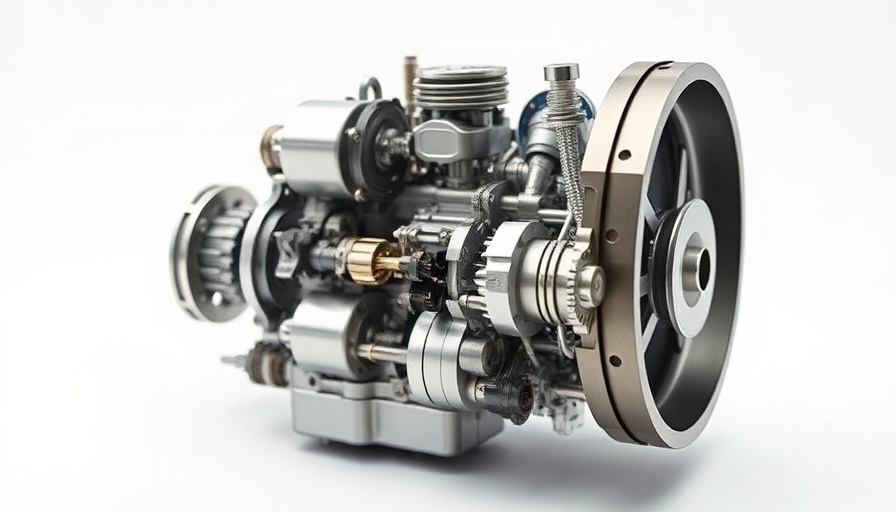
The Future of Hydrogen Combustion Engines: Innovations by Cummins
As the world shifts towards more sustainable energy sources, hydrogen combustion engines emerge as a potentially game-changing technology in the automotive industry. Recently, engine manufacturer Cummins unveiled a revolutionary turbocharger specifically designed for hydrogen vehicles, marking a significant step towards optimizing this cleaner energy source.
Understanding Hydrogen Combustion:
Hydrogen combustion engines leverage existing internal combustion technology while needing specific modifications to maximize efficiency. Compared to traditional gasoline or diesel engines, hydrogen engines require a unique approach due to their lower energy density and higher airflow requirements. Cummins' new turbocharger, titled the CCS H2 ICE, addresses these technical demands, helping to ensure that hydrogen engines are not only cleaner but also operate efficiently.
A Closer Look at the CCS H2 ICE Turbocharger
The CCS H2 ICE turbocharger utilizes a variable-geometry design, which enables it to adjust airflow on demand. This feature is critical because it minimizes turbo lag, the delay between pressing the accelerator and the engine's response. Furthermore, this adaptive mechanism supports the engine's higher airflow and lean burn requirements, which are vital for reducing nitrogen oxide (NOx) emissions—a significant pollutant even in hydrogen combustion.
The Broader Industry Context:
While Cummins is steering towards hydrogen combustion, it’s important to note that the company faced scrutiny for its past emission control practices, including a hefty $1.7 billion settlement over diesel emissions cheating. However, this pivot towards hydrogen technology could signify a renewed commitment to cleaner, more responsible automotive solutions.
The Market Potential and Challenges
Cummins is aligning its hydrogen engine prototype with potential uses in European fleets, aiming for a robust infrastructure that supports this technology in the U.S. market as well. The adaptability of hydrogen engines must navigate various challenges, from public acceptance and infrastructure development to ongoing research and investment. Competing firms like Bosch and Toyota are also investing heavily in hydrogen technologies, creating an environment ripe for innovation and collaboration.
A Cleaner Tomorrow?
As the automotive industry continues to evolve, understanding hydrogen combustion’s role in reducing pollutants is essential. The advancement of the CCS H2 ICE turbocharger could catalyze broader changes in how we consider fuel efficiency, emissions, and the future of transportation.
 Add Row
Add Row  Add
Add 




Write A Comment